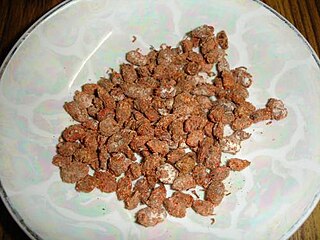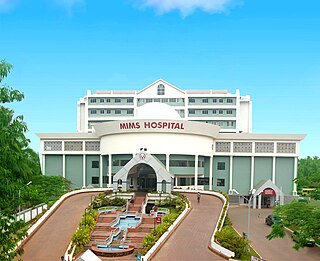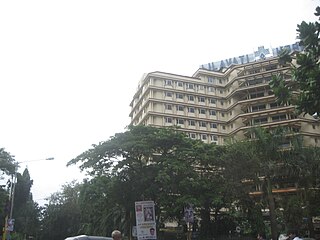
Ayurveda is an alternative medicine system with historical roots in the Indian subcontinent. The theory and practice of Ayurveda is pseudoscientific. The Indian Medical Association (IMA) characterises the practice of modern medicine by Ayurvedic practitioners as quackery.

"Unani" or "Yunani medicine" is the term for Perso-Arabic traditional medicine as practiced in Muslim culture in South Asia and modern day Central Asia. Unani medicine is pseudoscientific.

Siddha medicine is a traditional medicine originating in South India. It is one of the oldest systems of medicine in India. The Indian Medical Association regards Siddha medicine degrees as "fake" and Siddha therapies as quackery, posing a danger to national health due to absence of training in science-based medicine. Identifying fake medical practitioners without qualifications, the Supreme Court of India stated in 2018 that "unqualified, untrained quacks are posing a great risk to the entire society and playing with the lives of people without having the requisite training and education in the science from approved institutions".
Bachelor of Ayurvedic Medicine and Surgery (B.A.M.S.) is a professional degree in medicine focused on Ayurveda offered in India, Nepal, Bangladesh and other South Asian countries.
The Ministry of Ayurveda, Yoga & Naturopathy, Unani, Siddha and Homoeopathy is purposed with developing education, research and propagation of indigenous alternative medicine systems in India. The Ministry is headed by a Minister of State, which is currently held by Shripad Yesso Naik.

Aster MIMS is a NABH accredited 950-bed super-speciality hospital located in Kozhikode, India. It is located on Mini Bypass Road, Opp Kovilakam Residency Govindapuram, Kozhikode, Kerala, India. Aster MIMS, an NABH accredited hospital, is established with the aim to offer advanced medical treatment of international standards at affordable rates. MIMS has also established a 200-bed hospital at Changuvetty, Kottakkal and in Chala, Kannur.

The Lilavati Hospital and Research Centre is a private hospital located in Bandra, Mumbai, India. The hospital was established in 1978 by the Lilavati Kirtilal Mehta Medical Trust.

Vaidyaratnam Oushadhasala is an Ayurvedic Pharmaceutical company situated in Thaikkattussery, near Ollur. It is managed by Thaikkattusseri Eledathu Thaikkattu Family, one among the Ashtavaidya families of Kerala. Vaidyaratnam runs a NABH accredited nursing home by name Vaidyaratnam Nursing Home and an Ayurvedic Medical College apart from two ISO certified manufacturing plants in Thrissur and an R&D centre in Thaikkattussery, under the flagship of Vaidyaratnam. .

Healthcare in Chennai is provided by both government-run and private hospitals. Chennai attracts about 45 percent of health tourists from abroad arriving in the country and 30 to 40 percent of domestic health tourists. The city has been termed India's health capital. Multi- and super-specialty hospitals across the city bring in an estimated 150 international patients every day. Factors behind the tourists' inflow in the city include low costs, little to no waiting period, and facilities offered at the speciality hospitals in the city.
Veda Panchakarma Hospital & Research Institute is an Ayurvedic hospital based in Gorakhpur, Uttar Pradesh that specializes in treating eye diseases and other ailments through Ayurveda. Santosh Kumar Gupta is the director and chief physician of Veda Panchakarma Hospital.
Philip Augustine, an Indian gastroenterologist, specialist in gastrointestinal endoscopy and a hospital administrator from Ernakulam, Kerala. He founded the Lakeshore Hospital and Research Centre in 2003, one of the largest multispeciality hospitals in south India. The Government of India honoured him with the civilian award, Padma Shri, in 2010, for his services to the fields of medicine.

Believers Church Medical College Hospital (BCMCH) is a healthcare institution of Believers Church based in Thiruvalla, Kerala, India. The Medical College is attached to a 500-bed, multi-speciality hospital. The Medical College, established in 2016, is situated in a campus of about 25 acres (10 ha) connected by rail and road.
Vaidya Balendu Prakash is an Indian Ayurveda practitioner. He is a former physician to the President of India and the founder of Paadav, a specialty Ayurvedic hospital in Dehradun. The Government of India awarded him the fourth highest civilian award of the Padma Shri in 1999.
Devendra Triguna is an Indian Ayurveda practitioner, known for his expertise in Pulse diagnosis. He is a former honorary physician to the President of India and the incumbent president of the Association of Manufacturers of Ayurvedic Medicine (AMAM) and the All India Ayurvedic Congress (AIAC). The Government of India awarded him the fourth-highest civilian award, the Padma Shri, in 1999, and followed it up, a decade later, with the third-highest honour of the Padma Bhushan in 2009.

Rajagiri Hospital is a multi-specialty tertiary care hospital in the south Indian city of Kochi, Kerala. It is owned and managed by Rajagiri (CMI) group of institutions. It is one of the few hospitals in the country with both JCI and NABH accreditation.

The All India Institute of Ayurveda, Delhi is a public Ayurveda medicine and research institution located in New Delhi, India.
Medicinae Doctor (Ayurveda) or Ayurveda Vachaspati is the three-year master's course in the Indian medical system of Ayurveda. MD (Ayurveda) is offered in many medical colleges in India and Sri Lanka. The selection to the MD (Ayurveda) course is generally done by a competitive National level written entrance examination, which is open to candidates with BAMS.

Noemi Lois is a Clinical Professor of Ophthalmology at Queen's University Belfast and an Honorary Consultant Ophthalmologist and Vitreoretinal Surgeon at the Belfast Health and Social Care Trust.
BGR-34 is an Ayurvedic-derived product that is sold in India as an over-the-counter pill for the management of type 2 diabetes. It was developed in 2015 by two government-owned laboratories and launched commercially in 2016. It has been tested in only one, modest-sized, human trial. The drug has been heavily criticized, and without more clinical trials, its efficacy remains unproven. The manufacturers have refused to acknowledge the claims of inefficacy and other concerns.

















